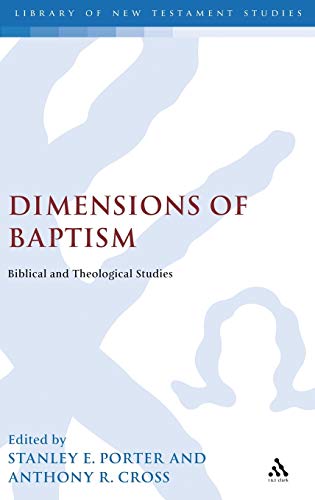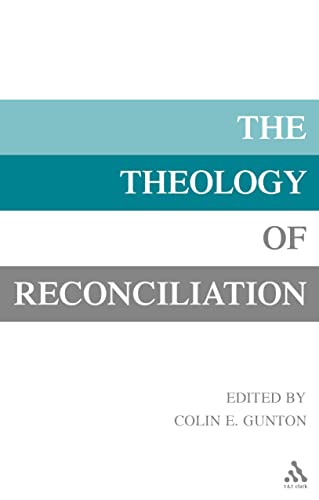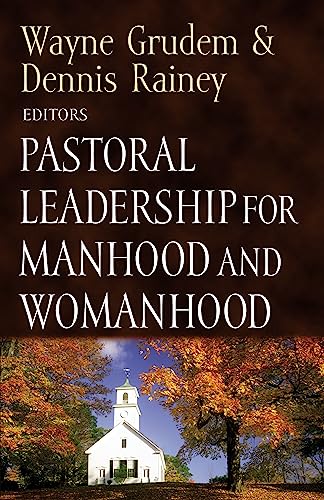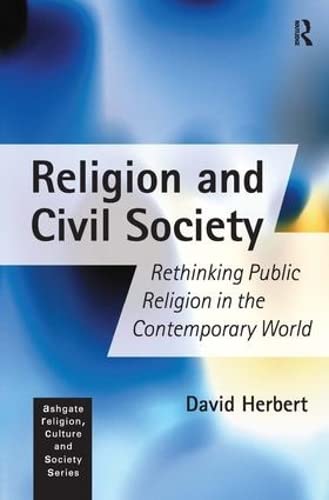Volume 29 - Issue 3
Simon Gathercole meets Henri Blocher
By Simon GathercoleSG: Henri, can you tell us about what you’re currently doing?
HB: I’ve been appointed as a Professor at Wheaton College Graduate School, mainly in the doctoral programme, but the arrangement is that I will not give up (at least for the time being) my ministry as a Professor in France. I will continue to live in France, and teach in our Facultè Libre de Thèologie Evangèlique in Vaux-sur-Seine in Paris. I will, therefore, just come on campus in Wheaton three times each year, for one month at a time, although the load of PhD students probably will get heavier—since the programme is just starting, there are very few at this moment. I suppose the number of students who will be my responsibility as a mentor will progressively grow. Otherwise, I hope I will have more time to write. I have fewer courses in our faculty in Paris because my successor is already being introduced to the work. Overall then I hope to have more time to write, as I have writing projects which have been awaiting completion for months and years!
SG: So what are your current writing projects?
HB: The main one which has been suffering for quite a time is a text-book on ‘church and sacraments’. I have still one chapter to write. The rest is practically completed.
SG: I wonder if you could tell us a little bit about how you came to be a professional theologian?
HB: I was born in a Christian family, in a family of pastors and professors. On one side, my grandfather was a Professor of Reformed Dogmatics at the University of Leiden. My father taught theology at a Bible Institute in Paris. So I had some models in my own family, but at first I did not think this was the Lord’s plan for me: I was preparing to be a missionary, and it was after I had completed the normal course of studies that it was clear from the health of my wife that we couldn’t go overseas. I was asked at that time to start teaching part-time while going on with my doctoral studies. So that is the way it started.
SG: So when did you first decide to study theology?
HB: The call to ministry I received quite early, when I was quite young, so it was clear in my mind that I would have to study theology. When I got my ‘Baccalaureat’, as we call it in France, I was very young, so I didn’t start theology immediately, although I took New Testament Greek. I had two years at the Sorbonne (first mathematics, then general literature), but it was with the idea that I would study theology next.
SG: I wonder if you could tell us what the experience is of being a Christian in France?
HB: I think we have to distinguish between being a Christian in France; being a Protestant among French Christians; and being an Evangelical among Protestant Christians in France. These are three qualifications to represent different situations. First, I think as a Christian in France, I have had no impression of being persecuted, but definitely as being different. I don’t think there was any hostility when I was young and as a student. And I did not at any time have training in a Christian college, but only in state secular schools, with this special understanding of what is called laicitè: the strict separation of religious studies from every other kind of training and education. There was practically no mention of the Bible. History was done with minimal reference to the role of the church and the Reformers—yes, very little. Calvin was mentioned as an important writer, who was one of the fathers of modern French, but little beyond that. So that could be mentioned as far as being a Christian in France is concerned, as France has for about two centuries probably been the most secular (by deliberate intention, officially) of all western states.
Then being a Protestant among Catholics has meant having a memory—a memory of persecution; having a memory, and at the same time a kind of pride in being descendants of those witnesses who were able to withstand such pressure. I have ancestors from the Cèvennes who really set a magnificent example, who, for example, were sent to the galleys. So being a Protestant means having that heritage, and claiming a French Protestant origin, fighting the image that is quite often in the minds of French people that Protestantism is a foreign thing. So this is at least one element. On the other hand, for some non-Christians, Protestants—sometimes for reasons we cannot be pleased with—have a good image in France, and have had for many decades. To some non-Christians, Protestants are secular-minded, set free from the Catholics: they are those Christians who are open, who are not fettered by dogmatic prejudice; who have freedom, and are not bound to the authority of a pope. That pleases the general public.
Being an Evangelical for a long period in my own experience has meant being part of a despised minority which was not considered at all. We were insignificant for quite a time, although a change occurred in the mid-1970s. I was, I think, very near to the place where the change occurred. There was a general assembly of Protestantism in the mid-1970s, where I was invited to prepare with others a special commission. This assembly was the first time Evangelicals were recognised (at least to some degree). In fact, there was a kind of paradoxical alliance with some left-wing Protestants, who felt similarly that under the name of pluralism, the establishment was controlling everything and silencing all those with different opinions. Following that, we have been given a hearing and of course the evangelical wing, although still very small, has been growing, whereas the rest of Christendom has been declining in numbers and influence. I think the evangelical wing has grown about 300 percent since the 1950s. It has weaknesses, and the rate of growth is slower now than it used to be: the late 1960s, ’70s, and early ’80s were years of rapid growth. It is still growing, but much more slowly, and of course there are tensions (with the greater numbers) over policies—over which strategies are to be chosen, and in some cases also over which beliefs are to be maintained—divisions between the ‘left’ wing and ‘right’ wing. I have done my utmost to avoid a division among evangelical ranks, but it is a danger.
SG: So how do you think your experience of living and working in France has affected the way you have done your theology?
HB: I have tried to be as relevant as possible to the French situation. So I think it has meant, for me, more dialogue with Catholic theologians than I would otherwise have tried to achieve. In my personal case, I have invested much in the study and understanding of the theology and philosophy of Paul Ricoeur. I followed one of his courses for a year, when I was very young in my doctoral programme, and I decided then that he would be the one great contemporary thinker I would try to know—not exhaustively, but more than the others. I therefore tried to read most of his writing and have had several occasions of being with him, and there is some personal relationship with him. This special relationship to Ricoeur I probably would not have had if I had not been a Frenchman.
SG: Why Paul Ricoeur?
HB: I think that in terms of gifts and power, he is probably the number one Protestant thinker among the French since Calvin. When I started to study him in 1961, he was not well-known internationally—apart from in French Protestantism. So I think that my view at that time was fully confirmed by what came afterwards. I discovered in him the one liberal—because he is a liberal Protestant—who realised the force of evangelical objections. Someone who dealt with them at least with a fair degree of seriousness and didn’t brush off these objections, as so many do, as if they didn’t exist. No, he is very careful to examine those objections. So I’m not convinced by the way he deals with them, but I’m impressed with his lucid understanding of the facts in most cases at least.
He stressed what to me is a very important element: the contrast between a metaphysical understanding of sin, of human alienation, and the Christian understanding which is historical, not metaphysical. A metaphysical interpretation of human evil considers that it is part of the very constitution of the human being, the human ‘essence’, that which defines what being human means (from creation if one believes in creation); a historical interpretation considers it was introduced at some point by the use, abuse, or misuse of freedom, so that the difference of before and after is relevant. So I was pleased to reflect on this contrast—that was one of my motivations in following his course. He is the man, especially in his earlier writing on the symbolism of evil, who has perfectly understood that this is the original feature of the biblical account of evil, and that it is entirely bound to moral monotheism and the prophetic call to repentance—that these three are bound together. Although he has realised all this and said it so well, still he does not maintain the historicity himself. So he is a liberal! He doesn’t accept it! But he has seen the meaning of it, the presence of it in Scripture. This is probably the main reason I have invested in the study of Ricoeur more than of others.
SG: What are some of the major theological battles you have tried to fight in your career?
HB: Well, apart from Ricoeur’s influence, I must say that I fought with Barth’s theology as a young man. I felt I had to, and it was rewarding. Of course this is also related to the French situation, because the Reformed segment of French Protestantism was heavily dominated by Barth—more so than in other countries, and for a longer period. Until the early 1960s at least, the Reformed church was basically Barthian, and the man with whom I started my doctoral studies in the Facultè of Paris, Jean Bosc, was a faithful Barthian. I therefore had to work with, and in some measure against Barth, as well, so that was a theological battle, I would say. There, the key question of worldview appeared to me to be entirely basic: the creation-fall-redemption scheme, rather than the Barthian christocentric concentration. For Karl Barth, it is the very principle of his method to draw everything from the one Christ-event (reconciliation). For him, therefore, the true theological order, despite the superficial aspect of the sequence (which he sometimes follows), is first reconciliation (incarnation, cross, resurrection) and then, logically second, creation and sin. I had to decide basically between Barth’s choice on this, and what I found more biblical—the classical Reformed interpretation. That, therefore, was one basic fight.
Then the question of hermeneutics was an important topic for me. I did more work on that topic than in other areas. Some of my longest and most technical articles were on this—I should say, on the older form of the hermeneutical debates; I have not kept abreast of the more deconstructionist forms. So that was another fight.
Then there was the area in which I first worked with my doctoral thesis and now hope to write a book. That is in the area of the sacraments. My effort has been to shape an understanding of sacramental function that is different from both the Catholic and the Reformed one. Although I think I can agree formally with practically all of Calvin’s propositions, still I think that as an account of sacramental function, the Reformed doctrine is not satisfactory, and that there is (more implicitly than explicitly) in the Baptist tradition, which is mine, a third view which is more satisfactory. However, I don’t agree at all with those Baptists who have tried to remedy the weaknesses of the explicit Baptist account by going back to the Catholic heritage for a dose of sacramentalism! I have, therefore tried to bring about an original interpretation which is not in formal disagreement with the Reformed one, but with the emphasis elsewhere. That is an area in which I initially didn’t publish much, but I have now written a few articles in French, and am publishing the text-book next year. But later I hope to write a more academic book on sacramental function.
SG: Who have been the most influential theologians in your life, both in personal contact, the people who have been your mentors, but also among dead theologians you have read!?
HB: I have already mentioned two names—great thinkers with whom I have had to fight, whose influence I have had to resist. Yet at the same time I was shaped by that very effort. Because I studied them without being convinced, I was probably influenced in unconscious ways.
But on the other side, Calvin is really such a pleasure just to read and discover that he has seen all the problems, and the facets of the problems, already. So Calvin is a great influence. Also, Roger Nicole was my Professor of Systematic Theology, and between his family and mine there has been a long friendship. It was because he taught in the college that I went to it, and he was an influence on me at that time. I didn’t discuss as much with him as with others. There was a NT Professor with whom I had hours of discussion, but I couldn’t say that that was such an influence at the same time, at least I don’t think so.
SG: You’ve been involved in discussion between Evangelical theologians and Catholic theologians in France. I wonder if you could explain to us what has taken place, and how you have enjoyed the experience?!
HB: I have enjoyed it! I have been involved in two different dialogues, and the comparison between the two is also an interesting feature. I have been involved in the WEF or the WEA (World Evangelical Fellowship, then Alliance) dialogue with the Pontifical Council for Promoting Christian Unity. There I met several theologians, including Cardinal Avery Dulles. The funny thing is that at times Dulles and myself would agree, as two dogmaticians, against some of our colleagues on both sides! I have also been involved in dialogue between Catholics and Baptists in France, and there my main partner with whom I have also worked and conversed in other settings has been Bernard Sesboüè, the Jesuit theologian.
I have noticed here some interesting differences. In particular, in the conversations with theologians appointed by the Pontifical Council, we were confronted with a much more traditional Catholic position than that which we encountered in France—this was quite plain. In both of these dialogues, our emphasis has been that we first had to know each other and understand our feelings. We shouldn’t prematurely seek agreement, so we have not made any significant step in the way of agreement; we have stated our common emphasis on the trinity, on the incarnation, and also on Scripture. In some respects at least, especially with such a man as Cardinal Dulles, there is an emphasis on Scripture as the Word of God, as inspired unreservedly, which is also good Catholic dogma. There is of course the problem of interpretation to be raised; and there is the problem of the Apocrypha, but on the nature of biblical inspiration, with the traditional Catholic position there is agreement.
But we have also brought to light the basic differences and oppositions between our positions, and the question of the sacraments has again been central. In almost every round of discussion—or at least very often—we go back to the role of baptism and the eucharist. And with no possible agreement, although such a man as Bernard Sesboüè does make considerable modifications to what is usually considered to be the Catholic understanding of baptism and the Lord’s Supper. He definitely has an understanding of transubstantiation that I would consider not so far from things we could accept, and for instance he would be ready to say, with quotations from Thomas Aquinas on his side, that believer’s baptism should be considered as the norm. Although he would defend infant baptism, he would agree that the basic model from the NT would be believers’ baptism. He would then find reason also to legitimise infant baptism. So I think it’s quite interesting to hear such things.
SG: What do you think will be the most important issues in the near future, in the next generation?
HB: Oh, I am not a prophet—at least in the predictive sense! I think we are quite often surprised with what happens. As the new thing, the new fad, I’m not sure that the so-called postmodernist, deconstructionist type of thinking has such a future. I think it is a fad. It lacks a serious basis. I grow more and more impatient, I confess, with the very word ‘postmodern’: as a tag, it is so convenient, it boosts your ego, and is favourable to book-selling to have ‘postmodern’ in the title! Actually it is fate modernism. I think all the serious writers are not using the language of ‘postmodern’—the vast majority of them, at least. There was a special consultation at the Sorbonne of about twenty of the world’s leading intellectuals in the year 2000 (George Steiner, for instance, was among them) on ‘The Future of Christianity’. The participants gave their interpretation of our cultural situation, and in the book which came out of that consultation, none of them uses the word ‘postmodern’! Not one of them! I think that’s significant. I know this is a negative answer to your question.
On the other hand, I think the syncretistic pressure is very, very strong and maintaining a pure Reformation understanding of the gospel will be under great pressure. It already has an air of ‘bad manners’ to insist strictly on sola Scriptura, on a clear doctrine of justification by faith alone, and so on. So I think it will be a test of our faithfulness to the gospel to maintain them in ways which are not just frozen conservatism.
SG: Many of the readers of Themelios are of course theological students who are at the beginning of their theological study. How would you advise a theological student to maintain both studying the Bible academically and also reading the Bible devotionally? Do you have any advice from your own experience?
HB: Well, I think I would say three things. The first is that we should be convinced deeply, and with strong resolution, not to let the devotional relationship to the Bible wither away. It’s very important to maintain this relationship to the text as God’s Word, which God continues to use to shape my own life.
Second, this should not be done with a kind of wall of separation between the academic work and the devotional use, otherwise I think it is inevitable that a crisis will occur for the young student in theology. He or she has to find new ways of integrating what is learned from and about the Bible in classes with the personal reading of Scripture. It should not be just a childish reading of Scripture for the heart on one side, and then the academic exercises one the other side, with little communication between the two. There must be an integration. It is difficult in many respects, but I think it is critical that we do—and I think it can be successful when studying in an evangelical environment. The difficulty is ten times greater when young students are studying in a non-evangelical environment, so my advice would be to start to study theology in an evangelical environment. That would be the second point.
The third point is that I think one way of integrating is to use the Bible in the original languages for personal devotional reading. This, at least to me, has been extremely helpful, and one of the greatest joys and rewards of theological study has been the discovery of all the allusions to OT passages in the NT, especially in the gospels. The richness of just following the indications in the Nestlé-Aland Greek New Testament—these references to OT passages in the margin! It has to be done in Greek in order to get the reminiscences in wording, from the Septuagint especially. So this, I think, is a very important tool for better integration.
SG: Henri, merci beaucoup!
Simon Gathercole
Simon Gathercole
Cambridge University
Cambridge, England, UK






